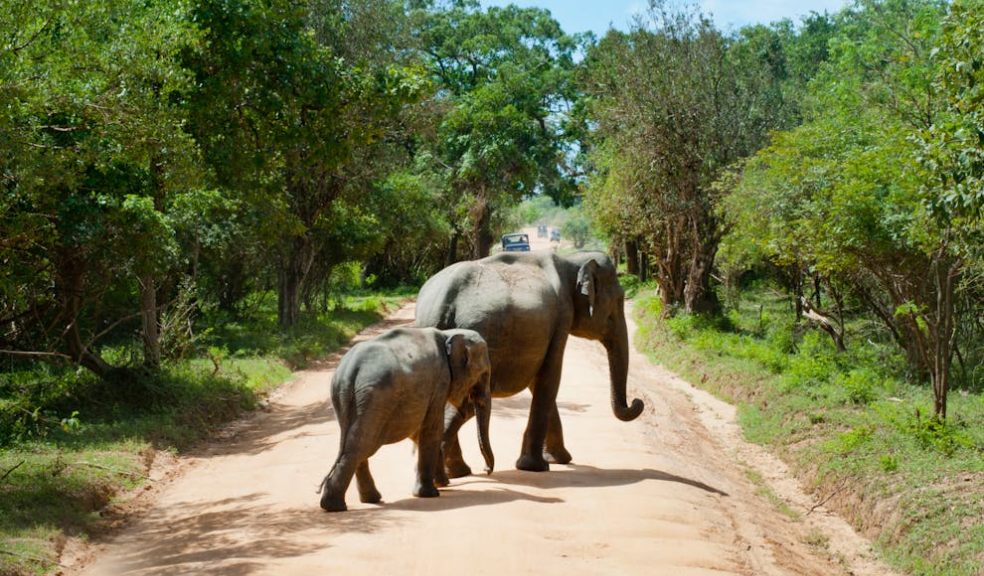
Can Safaris Teach Kids About Conservation?
Safaris are often celebrated for their thrilling wildlife encounters and breathtaking landscapes, but they also offer profound educational opportunities, particularly for children.
In the context of luxury family travel, safaris provide an ideal platform to teach kids about conservation, fostering a deeper understanding and appreciation for nature. By immersing children in the world of wildlife and conservation, families can inspire a lifelong commitment to preserving the planet. Here’s how safaris can serve as a powerful educational tool for teaching kids about conservation.
1. Immersive Learning Experiences
One of the most impactful ways safaris teach kids about conservation is through immersive, hands-on learning experiences. Unlike traditional classroom settings, safaris offer real-world encounters with wildlife and ecosystems, making the learning process engaging and memorable.
Educational Activities:
- Guided Game Drives: Professional guides provide insightful commentary about the animals, their behaviors, and their habitats. Children learn about the intricate balance of ecosystems and the roles various species play within them.
- Bush Walks: Many safari lodges offer guided bush walks where kids can explore the environment up close. These walks provide lessons on tracking animals, identifying plants, and understanding the delicate interactions within the ecosystem.
- Wildlife Tracking: Learning to track animals, understand their signs, and recognize their habitats helps children grasp the concept of conservation efforts and the importance of protecting wildlife.
2. Understanding Conservation Efforts
Safaris often provide opportunities for children to learn about the ongoing conservation efforts that protect wildlife and their habitats. Many luxury safari lodges and reserves actively engage in conservation projects, making them an excellent resource for teaching kids about these initiatives.
Key Aspects:
- Anti-Poaching Initiatives: Many reserves are involved in anti-poaching efforts to protect endangered species. Kids can learn about the challenges faced by conservationists and the measures taken to combat poaching.
- Habitat Restoration Projects: Conservation projects aimed at restoring and preserving natural habitats offer lessons in environmental stewardship. Children can see firsthand how these efforts contribute to the health of ecosystems.
- Community Involvement: Some lodges work with local communities to promote conservation and sustainable practices. Kids can learn about the importance of involving local populations in conservation efforts and the benefits it brings to both people and wildlife.
Choose a luxury safari lodge that actively participates in and supports conservation projects. Many high-end lodges offer behind-the-scenes tours of their conservation initiatives, providing an educational and inspiring experience for young travelers.
3. Fostering a Connection with Nature
Experiencing nature firsthand can significantly impact children’s attitudes towards conservation. Safaris offer an unparalleled opportunity for kids to connect with the natural world, fostering a sense of wonder and responsibility for its preservation.
Connection-Building Activities:
- Wildlife Observation: Observing animals in their natural habitat helps children develop a deeper appreciation for wildlife and their behaviors. This firsthand experience can inspire a personal commitment to conservation.
- Nature Photography: Encouraging kids to take photographs of wildlife and landscapes allows them to document and reflect on their experiences. This creative activity can heighten their awareness of the beauty and fragility of nature.
- Storytelling: Many safari guides use storytelling to convey the importance of conservation. Engaging narratives about the challenges faced by wildlife and the successes of conservation efforts can leave a lasting impression on young minds.
4. Promoting Sustainable Travel Practices
Luxury family travel often emphasizes sustainable and responsible tourism practices. By participating in a safari, families can model and reinforce the importance of sustainability in travel and everyday life.
Sustainable Practices:
- Eco-Friendly Accommodations: Many luxury lodges prioritize eco-friendly practices, such as using solar energy, minimizing waste, and conserving water. Children can learn about these practices and their role in reducing the environmental impact of travel.
- Support for Local Economies: Responsible safari lodges often support local communities through fair trade practices and employment opportunities. Teaching kids about the positive impact of supporting local economies can enhance their understanding of sustainable development.
- Leave No Trace: Emphasizing the importance of minimizing one’s impact on the environment and following “Leave No Trace” principles helps instill a sense of responsibility in young travelers.
5. Inspiring Future Conservationists
The ultimate goal of teaching kids about conservation on safari is to inspire a lifelong commitment to protecting the environment. By providing engaging and educational experiences, safaris can motivate children to become active participants in conservation efforts.
Inspiration Activities:
- Conservation Workshops: Some lodges offer workshops or activities focused on conservation topics, such as wildlife protection, habitat management, and environmental advocacy. These programs can spark a passion for conservation in young minds.
- Volunteering Opportunities: Older children and teens may have the chance to participate in conservation volunteer programs, providing hands-on experience in protecting wildlife and preserving habitats.
Safaris provide more than just an exciting adventure; they offer a powerful platform for teaching kids about conservation and fostering a deep connection with nature. Through immersive learning experiences, exposure to conservation efforts, and opportunities to engage with the environment, safaris can inspire a lifelong commitment to protecting our planet. For families seeking luxury family travel experiences that combine education with adventure, safaris offer a unique and impactful way to instill important values and create lasting memories.













